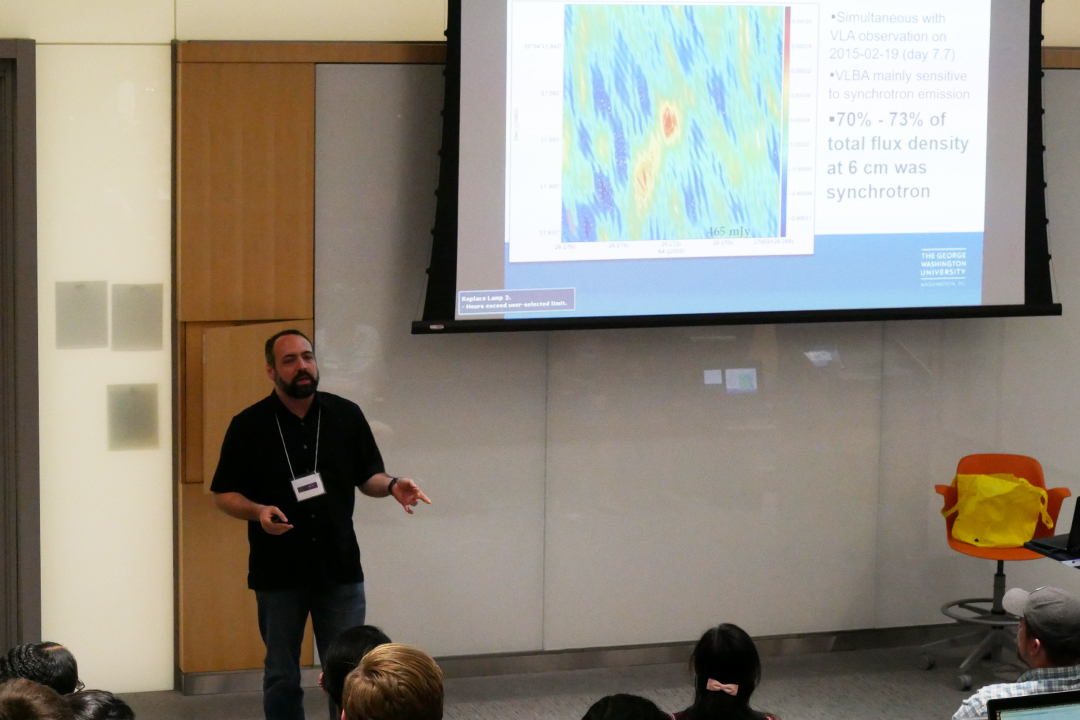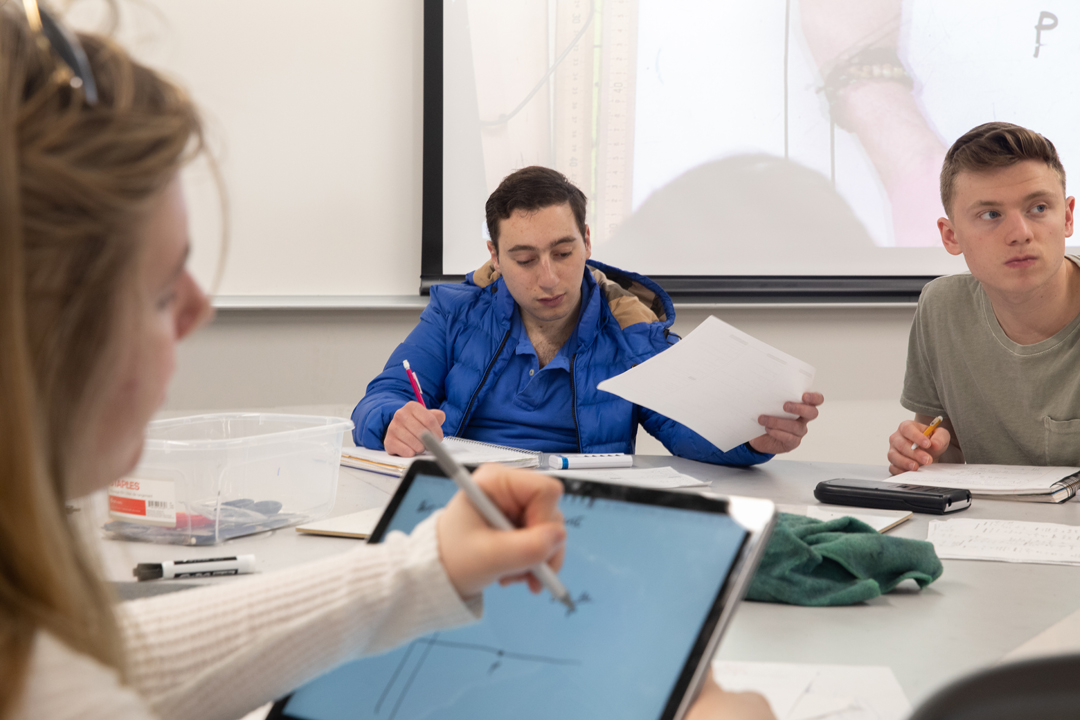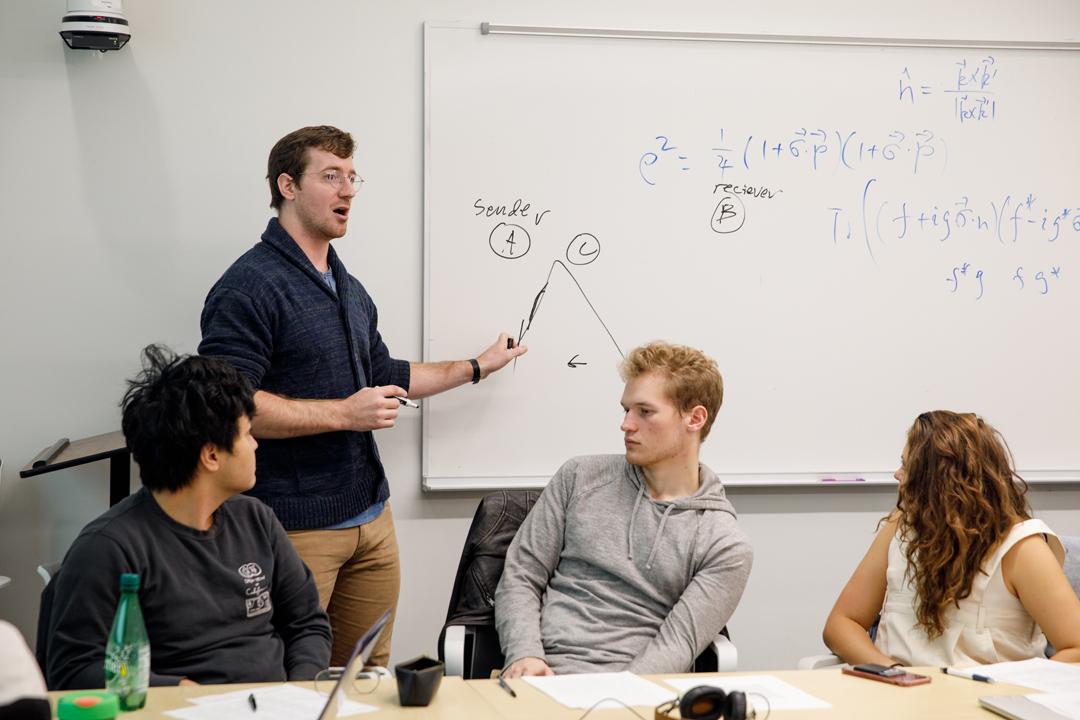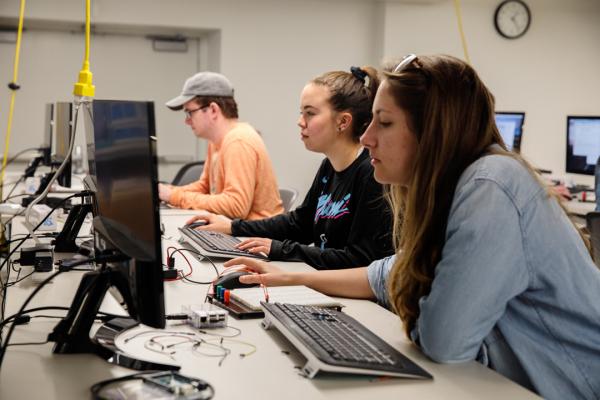Undergraduate
In the Department of Physics, undergraduate students explore the fundamental laws of physics and apply them to our world. Classes may include the study of stellar evolution and the conditions around black holes, or examine how classical mechanics relates to wave motion, or explore the interaction of protein networks with individual molecules. Through material geared toward both physics majors and other interested students, faculty aim to challenge students and spark curiosity about the intriguing puzzles that surround us every day.
Degrees

Astronomy and Astrophysics

Biophysics
Why Study Physics?
Many of the world’s great transformative technologies — the transistor, the laser, the fiber optic cable, panoramic photography, the Global Positioning System (GPS) and solar panels — originated in the minds of curious physicists and astrophysicists. They learn to draw upon their understanding of the physical world to create out-of-the-box solutions and inspire new technologies.
While some physics majors and minors pursue career paths in research or academia, many end up using their deductive and data science expertise in the corporate, government and nonprofit worlds. Physics is also an excellent choice for students considering graduate education in medicine, law and engineering. Graduates of our programs are sought after because of their problem-solving, analytical and advanced instrumentation skills.
A Unique Approach
SCALE-UP Classroom
The Student-Centered Active Learning Environment for Undergraduate Programs — otherwise known as “SCALE-UP”— is an active learning environment designed to promote hands-on education in a group setting. Physics students work in groups and use audio-visual tools, LCDs, whiteboards and interactive clicker technology to give and receive real-time feedback during class. A ceiling camera allows instructors to project a document or textbook onto the screen, and students can use video inputs to present through the classroom projection system from their own devices at each desk. The collaborative setting empowers students to discuss their work and engage in an active learning environment. The SCALE-UP classrooms are located in Corcoran Hall on Foggy Bottom Campus.
Innovation Lab
Merging the goals of both physicists and engineers, the Innovation Lab facilitates student research and learning activities focused on applying physics solutions to real-world problems. The lab is also a place for creativity and for sharing knowledge. To that end, the program hosts regular evening clubs where anyone on campus can come brainstorm on electronics and programming projects.
Future projects include the development of real-scale research experiments in which students collaborate with external partners, such as the NASA Goddard Space Flight Center, the Jefferson Lab and the Naval Research Laboratory.
“We are working on skills that we need to use in the real world, and we learn how to conduct ourselves as professionals, whether that be how we present ourselves on paper, in résumé writing or in oral presentation.”
Jane Peabody
BS '20, Physics






